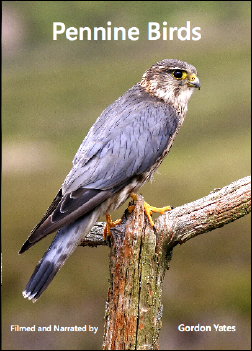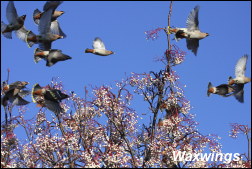Near Miss

On the 5th December I found a flock of eighty Waxwings and sat on a snow covered wall along the roadside to film them for two hours. The fog descended and with a wet backside I returned home to change my trousers and grab something to eat. When I returned forty minutes later there was a police car, a breakdown truck and the car in the above photo had knocked down a lamp post and demolished the wall where I had been sat less than one hour before! Needless to say the Waxwings were still feeding on the same tree even with all the commotion going on close by.
On the sixth of December we had the most superb hoar frost I have ever seen. I was out locally all day and found three groups of Waxwings ( 130, 10 and 8 ) in the Oldham / Rochdale area. On Hopwood there was a Green Woodpecker and a Jack Snipe.
On the eighth of December, after a frost of minus ten degrees centigrade, I visited the Ingleton area and can you believe it I found a flock of twenty two Waxwings on the Settle bypass. There were good numbers of Fieldfares in the same area which is more than I can say for the local Rochdale area where there are still very few.
In the garden we had a record of seven consecutive days with more than twenty species feeding. Amongst these there was a record five Bullfinches. The female Sparrowhawk caught and ate a Collared Dove over a period of one hour on one day.
The Pennine Birds DVD is selling very well and it had a very good review in the Manchester Evening News.






